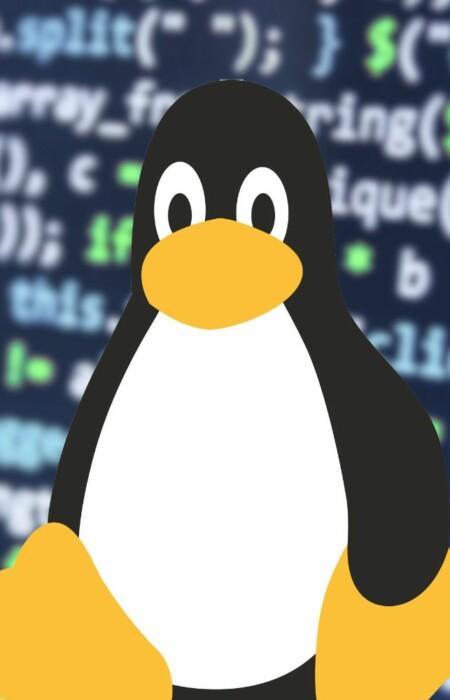DevSecOps Foundation (DSOF) eLearning
In today's fast-paced environment, security is a critical component for organizations constantly releasing new code. DevSecOps enhances the DevOps methodology by integrating security and compliance throughout the pipeline, empowering all team members with top-notch practices. The latest DevSecOps V 2.0 curriculum equips you with essential tools, insights, and strategies to foster and enhance DevSecOps cultures.
Exam Information
This comprehensive DevSecOps training program is meticulously crafted to equip students for the official DevSecOps Foundation (DSOF) exam. Discover how the advantages of this approach far exceed the implementation costs of DevSecOps.
Enriched with mock exams, this e-learning course ensures students are well-prepared for the actual exam, along with a complimentary exam voucher. Ensure your device meets the necessary technical specifications before scheduling your exam. For detailed information and guidance, visit the PeopleCert website.
Voucher requests are typically processed within 2 working days, although please allow up to 5 days. Remember, students must request their exam voucher within the course access period, which commences from the date of purchase. For additional details, refer to the GEL Support & FAQs page.
DevSecOps Foundation (DSOF)℠ Certification exam:
- Take the online proctored exam
- Answer 40 multiple-choice questions
- Utilize open-book resources
- Complete the exam within a 60-minute time frame
- Achieve a passing score of 65% by answering a minimum of 26 out of 40 questions correctly
Partner Statement
The DevSecOps Foundation (DSOF)SM course is provided by GEL, an ATO of PeopleCert.
Copyright Statement
DSOF SM is a registered trademark of PeopleCert. Used under licence from PeopleCert. All rights reserved.
Osallistumismuoto
Online
Kesto
16 tuntia
Hinta
629 €
Sertifiointi
Kyllä
Target Audience
- Organizations seeking to embrace the best practices, strategies, or automation approach of DevSecOps
- DevOps leaders/engineers or Site Reliability Engineers aiming to integrate security practices into their existing DevOps workflows
- Professionals interested in the architectures of continuous delivery toolchains
- Compliance and security personnel eager to contribute to DevOps initiatives
- IT executives, managers, security experts, practitioners, project and program managers, and business stakeholders desiring a deeper comprehension of DevSecOps principles
- Support teams, maintenance personnel, quality assurance teams, software engineers, Scrum Masters, release managers, testers, and more
- Individuals preparing to clear the DevSecOps Foundation (DSOF) exam
What will you learn?
- Understanding the objectives, methodologies, advantages, principles, and terminology of the DevSecOps framework
- Distinguishing the DevSecOps approach from other security frameworks
- Developing security strategies aligned with business objectives
- Integrating security seamlessly into the ongoing evaluation processes of DevOps and aligning DevSecOps with DevOps cultures
- Leveraging data and security sciences for effective data comprehension and application
- Embedding DevSecOps practices into the fabric of organizational cultures
- Incorporating security protocols into continuous delivery pipelines
- Driving organizational transformation through DevSecOps expertise
- Educating corporate stakeholders on new practices and pipelines
- Improving communication among Development, Security, and Operations teams
- Comprehensive preparation for the official DevSecOps Foundation exam
Course Content
Why take this course?
- Security stands as a prominent focus within the DevOps community today, with DevSecOps certification setting candidates apart
- Good e-Learning, a renowned online training provider, offers top-notch courses
- This training program aligns with the latest DevSecOps syllabus version, V 2.0
- The DevSecOps online course includes interactive slides, expert-led videos, and online resources crafted by seasoned subject matter specialists
- Concerned about DevSecOps certification expenses? Students receive FREE exam vouchers and dedicated support from Good e-Learning
- The course incorporates regular knowledge assessments to reinforce learning, along with a complimentary practice exam simulator
- No prerequisites are necessary for taking the exam
- This DevSecOps Foundation (DSOF)SM course is accredited by PeopleCert
Syllabus Information
Module 0: Welcome to DevSecOps Foundation
Learning Objectives
Module zero serves as an introduction to the key features, learning structure, objectives, and layout of the DevSecOps online training course.
It includes a syllabus, diagram pack, glossary, additional reading materials, and links for downloading essential framework publications. Commonly asked questions about the approach are also addressed in this module.
Students are equipped with a toolkit that includes:
- Table of contents
- DevOps Foundation reference sheet
- DevSecOps reference sheet
- Skills self-assessment form
- Glossary
- Customizable glossary
- Supplementary resources
- Diagram pack
Additionally, students receive a comprehensive exam guide and a curated list of literature to aid them throughout the course.
Module 1: Realizing DevSecOps outcomes
Learning Objectives
Module one provides an overview of the background and progression of the approach, including a discussion on CALMS and the Three Ways. The module delves into the challenges and limitations related to security while examining the concept of 'safety culture.'
Module 2: Defining the cyber threat landscape
Learning Objectives
Module two delves into the exploration of threat modeling, supply chain hygiene, and continuous compliance concepts. The module also examines the prevalent risks and vulnerabilities that practitioners encounter in their work.
Module 3: Integrating DevSecOps stakeholders
Learning Objectives
This module delves into the characteristics of an ideal culture and strategies to comprehend and bridge cultural variances within organizations. The exploration extends to the stakeholders in DevSecOps cultures, their key metrics, and a final assessment of governance, flow, and control.
Module 4: Establishing DevSecOps practices
Learning Objectives
This module delves into the establishment of DevSecOps practices, addressing continuous security, onboarding challenges, CI/CD pipeline, and security considerations in Cloud and Container environments.
Module 5: Memory Game
Learning Objectives
This module features an engaging memory game aimed at assessing your retention of key terms and definitions from modules 1-4.
Module 6: Best practices to get started
Learning Objectives
Module six focuses on the optimal strategies for enhancing flow, feedback mechanisms, and fostering a culture of continuous learning.
Module 7: DevOps pipelines and continuous compliance
Learning Objectives
Explore the intricacies of the DevOps pipeline, encompassing the planning and dule 9 addresses the importance of continual learning and touches on principles like training as policy, learning communities, and the value of retrospective and innovative learning.
Module 10: Memory game
Learning Objectives
Engage in a brief memory challenge featuring a game aimed at assessing your retention of key terms and definitions from modules 6-9.
Module 11: Course wrap-up
Learning Objectives
This module concludes the course.
Module 12: Practice Exam
Learning Objectives
The course comes with two practice exams to help students prepare for the certification exam. The first one was developed by the DevOps Institute, while the second has been tailored by our team of experts at Good e-Learning.
Students are advised to become familiar with the testing environment before booking the official exam.
When you feel you are ready to sit the exam, simply contact Good e-Learning to request your FREE exam voucher.
implementation processes linked to it. Delve into the objectives and challenges of the pipeline, along with practices for continuous integration and delivery, followed by insights on securing the pipeline.
Module 8: Building a responsive DevSecOps model
Learning Objectives
Module eight delves into the significance of being 'responsive' in navigating cyber threat environments. Discover the essence of KPIs, assessment, and reporting, followed by insights on implementing a secure pipeline.
Module 9: Learning using outcomes
Learning Objectives
Schedule
The course is valid for 6 months. After your order you will receive instructions for logging-in to the training within 2-3 business days. If you would like to start later, please mention that in the ordering form.
Hinta 629 € +alv
Pidätämme oikeudet mahdollisiin muutoksiin ohjelmassa, kouluttajissa ja toteutusmuodossa.
Katso usein kysytyt kysymykset täältä.
Aiheeseen liittyvät webinaarit
Aiheeseen liittyvät blogit


